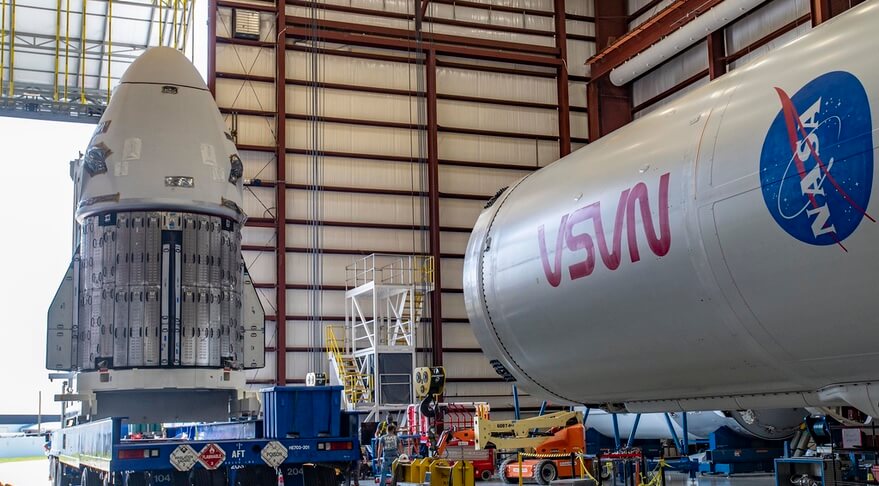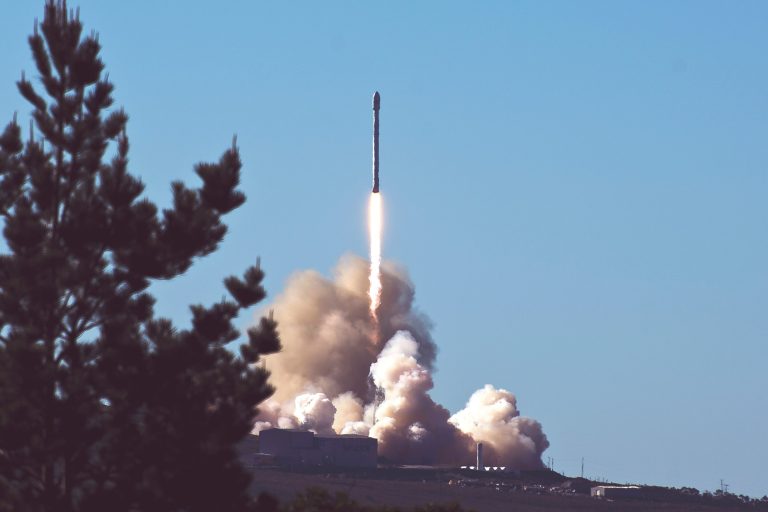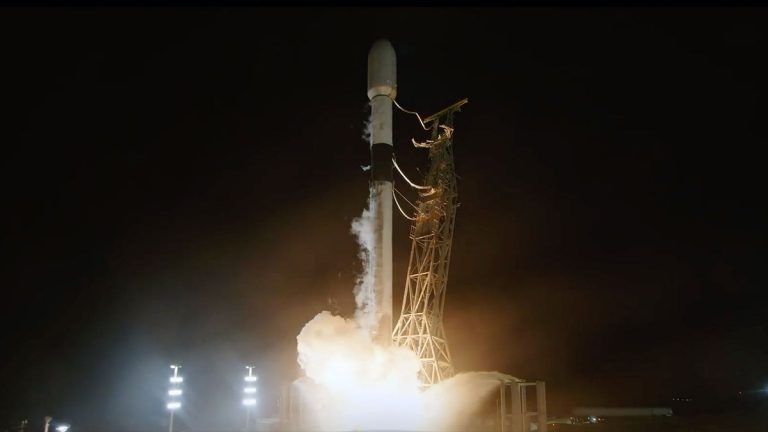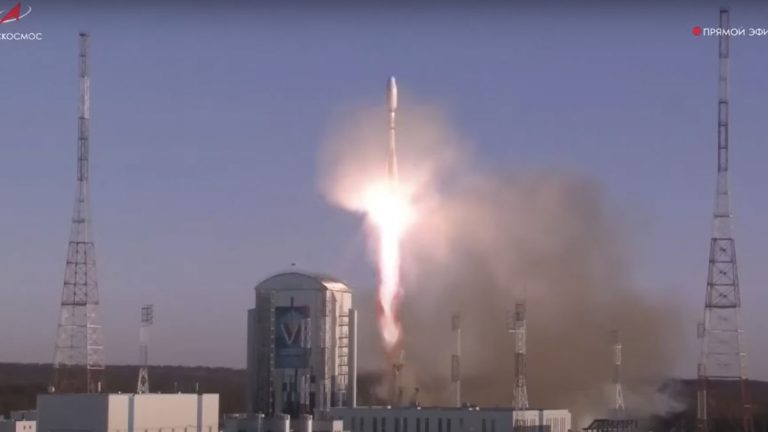
Crew-5 launch preparations continue amid hurricane threat (Image Credit: Space News)
Updated 4:20 p.m. Eastern with new launch date.
WASHINGTON — NASA is, for now, moving ahead with plans for a launch of the next crew to the International Space Station early next week as it watches an approaching hurricane.
NASA held a flight readiness review Sept. 26 for the Crew-5 mission, at the time scheduled for launch Oct. 3. The Crew Dragon spacecraft will carry NASA astronauts Nicole Mann and Josh Cassada, JAXA astronaut Koichi Wakata and Roscosmos cosmonaut Anna Kikina to the station.
Officials acknowledged at a briefing after the review that the schedule is dependent on weather as Hurricane Ian heads towards the west coast of the Florida peninsula, with effects to be felt throughout the state, including the Kennedy Space Center. That forecast prompted the agency to announce Sept. 26 that it would roll back the Space Launch System from Launch Complex 39B to the Vehicle Assembly Building, a process completed by early Sept. 27.
“Our biggest discussion today was probably regarding weather and timing,” said Kathy Lueders, NASA associate administrator for space operations. “The team is still working towards the Oct. 3 launch timeframe, but we also know we’ve got to work through weather conditions here at KSC.”
NASA announced Sept. 27 it had delayed the launch one day, to Oct. 4, citing the hurricane. “Mission teams will continue to monitor the impacts of Ian on the Space Coast and NASA’s Kennedy Space Center in Florida and could adjust the launch date again, as necessary,” the agency said in a statement.
The anticipated storm prompted NASA to delay the arrival of the crew, which was scheduled for Sept. 26. That alone would not push back the launch: Steve Stich, NASA commercial crew program manager, said they crew would typically arrive about four days before launch for preparations.
If weather or other issues case a delay, Stich said there are additional launch opportunities Oct. 4 and 5, as well as Oct. 7 through 9. Joel Montalbano, NASA ISS program manager, said there were no issues with the station if the launch was further delayed.
As of the time of the briefing KSC was in a condition called HURCON IV, meaning that the center was expecting severe weather in the next 72 hours. That involves initial preparations for the storm, said Kelvin Manning, deputy director of the center, such as checking on equipment that would be used by a “rideout team” that would stay at KSC during the storm to monitor damage.
“We’re securing facilities, property and equipment,” he said, such as at construction sites at KSC. The center is also coordinating its plans with Space Launch Delta 45, which operates neighboring Cape Canaveral Space Force Station. KSC entered HURCON III, meaning high winds were expected in the next 48 hours, on the morning of Sept. 27.
At the briefing, NASA and SpaceX officials said they were finishing up reviews of two technical issues with the spacecraft and Falcon 9 launch vehicle. One involved reviews of a “nonstandard” weld repair on a composite overwrapped pressure vessel (COPV) on another vehicle. Bill Gerstenmaier, vice president of build and flight reliability at SpaceX, said the company wanted to make sure none of the COPVs on the Crew-5 are affected and, if so, they are acceptable to fly.
“This is just an abundance of caution on the SpaceX team, and kudos to them for identifying it,” Stich said.
Stich said a second issue is to check a flap on the perimeter of the spacecraft where it bonds to composite material. “We want to go make sure and check the margins,” he said.
The Crew-5 launch was previously scheduled for early September but delayed when the new Falcon 9 booster for the mission was damaged during transport from SpaceX’s Hawthorne, California, factory to its McGregor, Texas, test site. The booster hit a highway bridge that required replacing the interstage section at the top of the booster, as well as avionics and a grid fin.
Stich said the booster underwent additional tests at McGregor, including a pressure test of the liquid oxygen tank, as well as standard booster tests and a static fire. “We convinced ourselves we’ve got a good vehicle to go fly,” he said.
“This rocket went through its normal full-up testing, post all the repairs, to make sure that it is ready to go,” said Gerstenmaier. “This booster is perfectly ready to go fly.”








